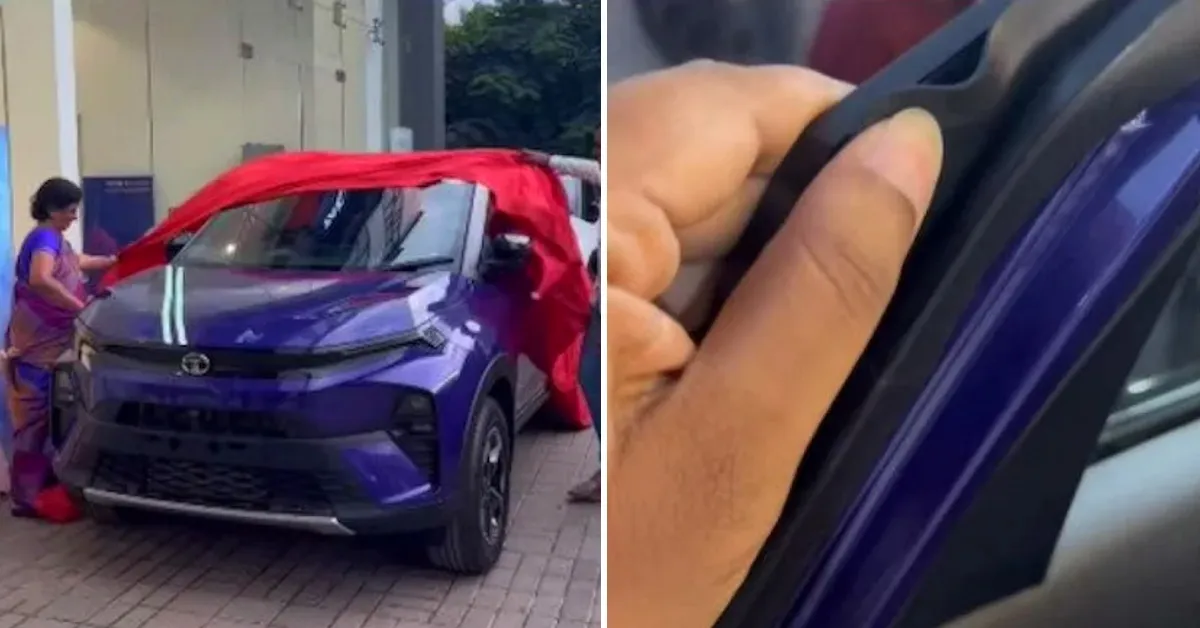Tata Motors has issued an apology to a frustrated customer who received a defective Tata Nexon. The owner says that he spent Rs 18.5 lakh on the new Tata Nexon petrol-automatic and he has been facing multiple issues including cosmetic defects, water-filled headlamps, scratches on the bumpers, quarter panel and tailgate frame. Also, the body has shoddy welding job with improper rubber beading fitment.
Hi Sharath, our sincere apologies for the inconvenience caused. Please share your primary & alternate contact number via DM, so we can have the relevant team assist you soon. https://t.co/gODvaEVWxr
— Tata Motors Cars (@TataMotors_Cars) November 28, 2023
Tata Motors instead of replacing the car have proposed that the customer should take the repaired car and Tata Motors will extended the warranty of the vehicle by 2 years. However, Kumar, the customer of the vehicle is not willing to settle down and has shared his concerns on the social media platforms. Tata Motors has issued an apology on the social media post and asked the owner to share relevant information through DM.
This case throws some light on how important is pre-delivery inspection while buying a new vehicle. To avoid mishaps and as a precautionary measure, a pre-delivery inspection is done, in which the dealership and customer come to know about any possible defect in the vehicle. While this overall issue is an example of pre-delivery inspection gone a bit wrong, we expect that all companies take this stage of the car buying experience a bit more seriously.
Do a PDI yourself
Sometimes, car dealerships have slipped up in the past, handing over vehicles that have some issues to customers. It’s not an uncommon thing, and the best way to avoid getting into such situations is by doing what’s called a Pre-Delivery Inspection or PDI.
Doing a thorough PDI before taking the keys of your new ride is super important. You’ve got to check every nook and cranny of the vehicle, right from the manufacturing month, which you can figure out from the chassis number. Besides that, it’s crucial to examine the body for any weird marks, repaints, or defects. Pop open that hood and take a good look at the engine compartment. Look for any worn-out parts, old wiring, or signs of heavy use. Don’t hesitate to ask the dealership about anything that doesn’t seem quite right.
Every now and then, a product—be it a car or anything else—might just turn out to be badly made. Unlike in some developed countries, India doesn’t have specific laws that protect consumers from getting stuck with subpar stuff. Sure, there are consumer courts, but there’s no law that says manufacturers have to replace defective things with brand new ones. In other places, if something’s faulty, they’re obliged to swap it out or give you proper compensation.

